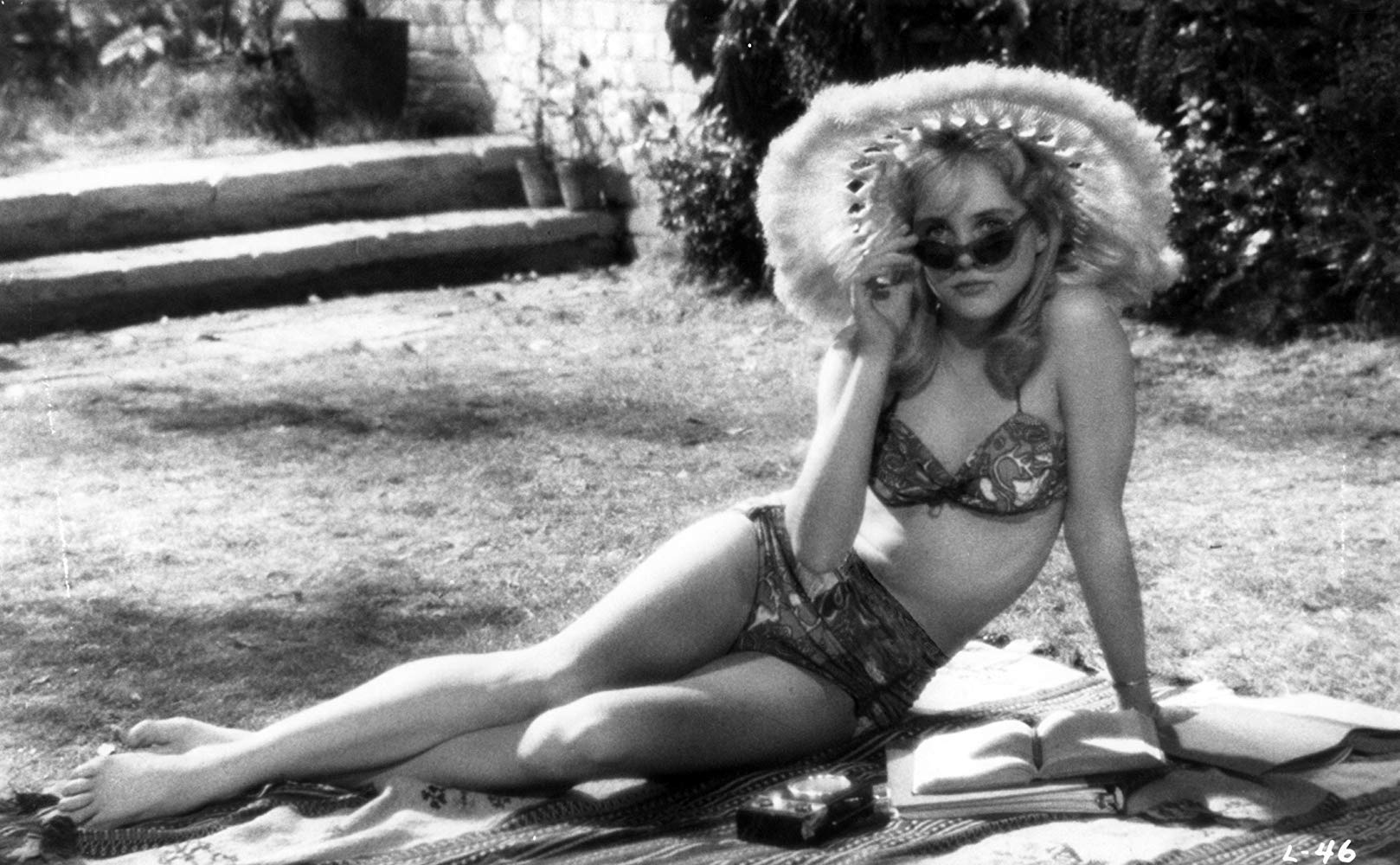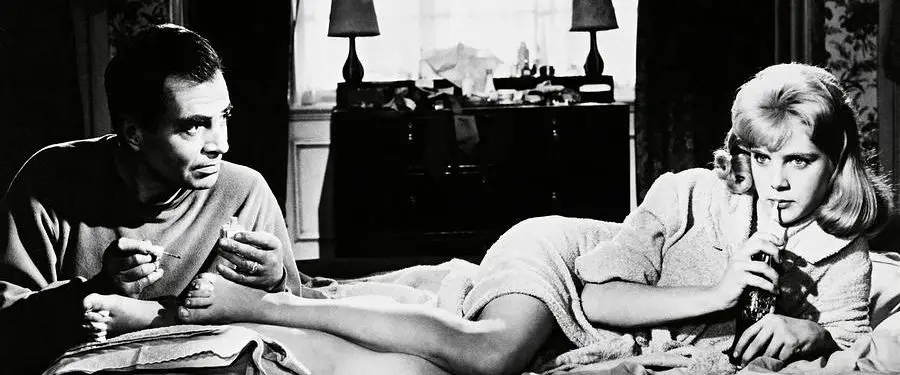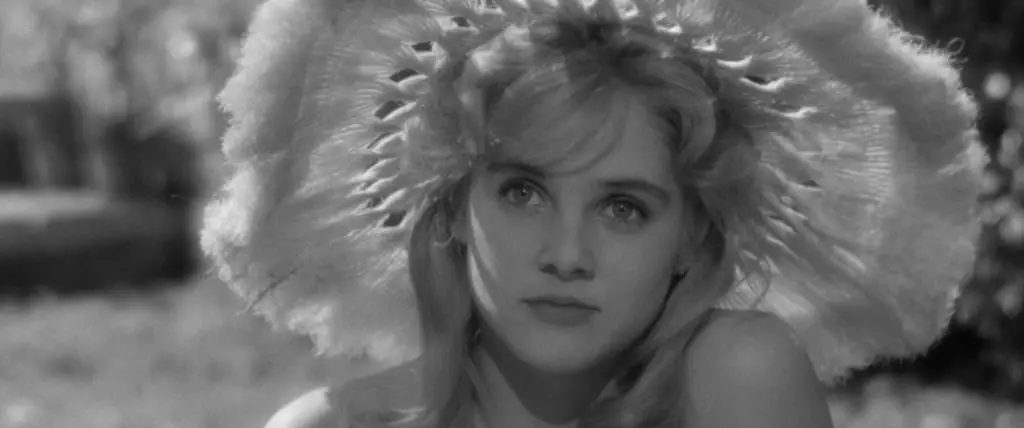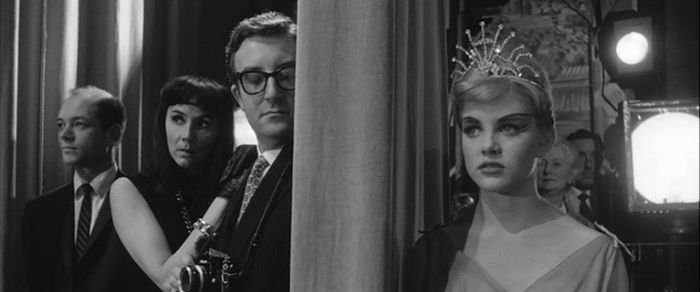Full Circle Flashback: ‘Lolita’ Review: “Perfectly Deceptive Black Comedy”
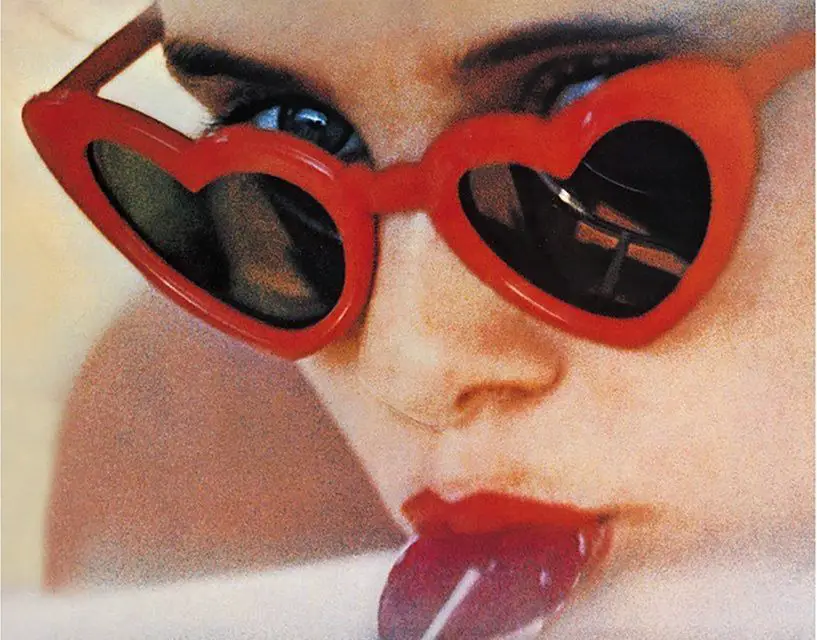
Lolita. I encourage you to say her name out loud. Listen to the lilt of your tongue as it rises and falls with each loving syllable. Each syllable conjures up images of sticky lollipops and lazy sunny days. Furthermore, look a tad bit closer and you will find a young girl adorned with heart-shaped sunglasses, spread out lithe in a front yard next to a radio and a book. Now, what if I were to tell you that Stanley Kubrick’s adaptation of Nabokov’s novel of the same name was not in color? Not to mention, Ms. Lolita is also not wearing heart-shaped sunglasses in the movie. But most of all, Kubrick’s Lolita is not a love story.
It is easy to get seduced with this misconception in a matter of seconds with the opening credits. Nelson Riddle’s “Love Theme” swells with strings and a wistful twinkle of piano keys as a woman’s toenails get painted. We are then thrown in media res where we witness the final confrontation between Humbert Humbert and Clare Quilty. In this scene, Humbert appears to be the “good guy”. After all, he appears to be avenging something that had happened between Quilty and Lolita. However, this is not the case. Kubrick brilliantly flips this scene on its head once it is revisited at the end of the film.
Strangely enough, the tone of the first scene hardly matches the black comedy of the rest of the film. However, this is not a fault in Kubrick’s direction because we have a limited perspective of Lolita’s world. We are trapped in the mind of Humbert, a British professor of French literature. He seems to be good-natured when he looks for a place to rent for the summer. His interactions with Charlotte Haze, the housekeeper, are delightfully awkward as she tries to impress him with her knowledge of all things high-culture. Largely speaking, the movie is breezy like any other ordinary comedy of the early 1960s. However, that is until Kubrick starts to gleefully push the boundaries of censorship and good taste.
When Humbert first encounters Lolita, he dramatically changes from the goofy bookworm of before into a pathetic, infatuated creep for the rest of the film. It is a momentous character change that happens in mere seconds. It is a devastating scene, particularly in the way that Kubrick uses music to clash with what is happening. Instead of a dark or melancholy composition, we get a flirty Ya Ya pop song. Kubrick ironically intended for Lolita to be about Humbert’s fall from grace, not Lolita’s. If we were to consider Lolita’s perspective, we may have gotten a different soundtrack entirely. When Sue Lyon stares into the camera, she gives the smallest trace of a smile. Couple that smile with the flirty soundtrack, and you might assume that she is not innocent. I beg to differ. Sue Lyon was 14 years old at the time of shooting.
After this introduction, Lolita spirals into madness. The pacing picks up significantly after Humbert impulsively marries Charlotte in order to keep contact with Lolita. Domestic life should be a quiet and slow affair, not in Lolita. Instead, we get a murder plot. Charlotte’s eventual suicide should be a tragic and frightening event… not in Lolita. Again, we hear Nelson Riddle’s Ya Ya theme soundtrack Charlotte’s dead body in the middle of a rainy street. Yes, it is mean-spirited, but I would be lying if I did not say that it was not wickedly funny. The only thing that could check my laughter was Lolita’s well-being. She does not have any protection against Humbert without her mother.
The most conflicting feature about Lolita is that it manages to make you feel squeamish and guilty for laughing along with Humbert. Not only is Humbert ridiculous, but Clare Quilty, an erudite TV playwright, goes to great lengths to get with Lolita as well. It is hard not to fall in love with Peter Sellers’ Quilty, he is a shining star that balances refinement with cartoonish quirks. However, that is the biggest problem about him and Humbert: they are far too likable. For the inattentive viewer, they might seem like the “good guys”, which could not be farther from the truth. Consequently, Lolita becomes the temptress that ruins the careers of respectable old white men. Doesn’t this sound familiar? Kubrick seduces the viewer with false truths more often than Lolita ever does.
Lolita is a proud placeholder at the bottom of many Kubrick rankings and lists. It is a shame. Lolita deserves better. Sure, it does not have the grandeur of 2001: A Space Odyssey or the sting of Dr. Strangelove, but it does raise many difficult questions. Empathy is art’s greatest tool, it makes life easier to bear when you can make a connection with a character on screen. When you understand another’s feelings and thoughts, life becomes a little less lonely. Now how far can empathy extend? Lolita pushes this question to its very limits with Humbert.
His perspective cannot be reliable. What should be a tragedy ends up as a black comedy from his dictation of the narrative. A narrative that very rarely considers the thoughts and feelings of Lolita. I think that this is where the misunderstanding comes from. Lolita carries the baggage of romanticism and Lana Del Rey songs, it all might seem cutesy on the surface, but it is not the truth. Lolita’s real name is Dolores, which means “sorrows” in Spanish. I encourage you to say her name out loud. Listen to the difference, but most importantly, listen to her.
10/10
Lolita is available on Blu-ray and Digital HD.
The film stars James Mason, Sue Lyon, Shelley Winters, and Peter Sellers.

